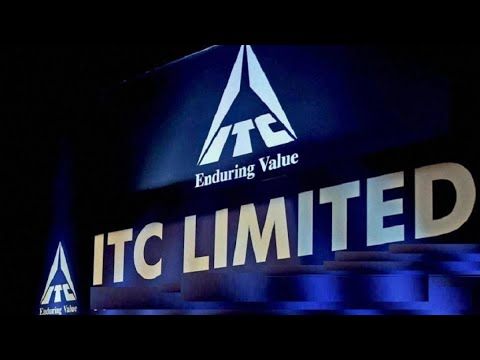ITC Completes Acquisition of 24 Mantra Organic: A Major Leap into India’s Organic Food Market
With the purchase of Sresta Natural Bioproducts, ITC expands its portfolio, strengthens its farm-to-table supply chain, and sets sights on global organic food leadership.
Introduction
India’s organic food industry has seen rapid expansion, fueled by rising health consciousness, evolving consumer tastes, and a global move toward sustainable farming practices.
In a move that underscores the sector’s potential, ITC Limited has finalized the acquisition of Sresta Natural Bioproducts Private Limited (SNBPL), the company behind the widely recognized 24 Mantra Organic brand. The transaction, completed on June 13, 2025, is set to reshape the competitive landscape of organic foods in India.
Deal Structure and Financial Details
The acquisition was carried out as an all-cash transaction, free of both debt and existing cash balances.
ITC acquired a full 100% stake in Sresta Natural by paying an upfront amount of ₹400 crore, with an additional ₹72.5 crore linked to the achievement of specific performance targets over the next 24 months. This takes the total potential deal value to ₹472.5 Cr.
As part of the acquisition, Sresta Natural’s overseas subsidiaries in the United States and the United Arab Emirates have also become step-down wholly owned subsidiaries of ITC, expanding the conglomerate’s international footprint in the organic sector.
Why Sresta Natural and 24 Mantra Organic?
A Pioneer in Organic Foods
Established in Hyderabad, Sresta Natural Bioproducts has been a pioneer in the organic packaged food industry.
Its flagship brand, 24 Mantra Organic, is a household name across India and enjoys a growing presence in international markets. The company’s portfolio spans over 100 organic products, including staples, spices, condiments, edible oils, and beverages.
Robust Farmer Network
One of Sresta’s key strengths is its direct sourcing model, working closely with approximately 27,500 farmers across 10 Indian states. This extensive network ensures traceability, quality, and a reliable supply of organic raw materials—an asset that ITC can now leverage to build a resilient farm-to-table supply chain.
Strategic Rationale for ITC
Expanding the Foods Portfolio
ITC has been consistently growing its packaged foods portfolio, and the inclusion of 24 Mantra Organic meaningfully enhances its product range.
The organic segment is one of the fastest-growing categories in India’s food industry, and this acquisition instantly gives ITC a leadership position.
Strengthening Sustainability and Brand Equity
The move aligns with ITC’s commitment to sustainability, responsible sourcing, and health-focused products. By integrating 24 Mantra Organic’s established brand and ethical sourcing practices, ITC enhances its credentials among health-conscious and environmentally aware consumers.
International Growth Ambitions
With Sresta’s established presence in the US and UAE, ITC now has a ready platform to accelerate its global ambitions in the organic foods space. The acquisition opens doors to new markets and export opportunities, leveraging the growing global demand for Indian organic products.
Market Impact and Industry Response
Following the acquisition, ITC’s shares have seen renewed investor interest, with analysts highlighting the strategic fit and long-term growth prospects. The deal is expected to intensify competition in the organic foods segment, prompting other FMCG majors to ramp up their own organic offerings.
Industry observers note that ITC’s robust distribution network, marketing muscle, and deep pockets could help scale the 24 Mantra Organic brand to new heights, both in India and internationally.
The Road Ahead: Integration and Growth
ITC has announced that Sresta Natural and its subsidiaries will operate as wholly owned subsidiaries, ensuring business continuity while benefiting from ITC’s resources and expertise. The integration process will focus on expanding product reach, enhancing supply chain efficiencies, and driving innovation in the organic foods category.
With the organic food market projected to grow at double-digit rates in the coming years, ITC’s timely acquisition positions it at the forefront of a sector poised for explosive growth.
Conclusion
ITC’s takeover of Sresta Natural Bioproducts and the 24 Mantra Organic brand represents a pivotal development for the company as well as a significant milestone for India’s organic food sector. By combining Sresta’s pioneering legacy and farmer network with ITC’s scale and vision, the deal promises to deliver value to consumers, farmers, and shareholders alike. As health and sustainability become central to food choices, ITC is now well-placed to lead India’s organic revolution at home and abroad.
Meta Description
ITC Limited, one of India’s largest diversified conglomerates, has officially completed its acquisition of Sresta Natural Bioproducts, the owner of the renowned 24 Mantra Organic brand. This all-cash deal, valued at up to ₹472.5 crore, marks a significant milestone in ITC’s strategy to capture the rapidly growing organic food market in India and abroad. The acquisition brings with it a vast product portfolio, a strong farmer network, and international reach, positioning ITC as a formidable player in the organic foods segment.
:
The image added is for representation purposes only


